JavaScript support is required to run this website properly.
Please enable it in your browser's settings, or turn off the script blocker.
HDR photography gallery - samples processed with easyHDR
HDR Timelapse
Comet C/2023 A3 Tsuchinshan-ATLAS timelapse. 130 photos were taken with a fish eye lens, processed individually with easyHDR using batch processing feature, then combined into a movie with ffmpeg. Each photo exposed 15 sec. Total duration 40 minutes.
© Bartłomiej Okonek
HDR Photos - Multiple Exposures
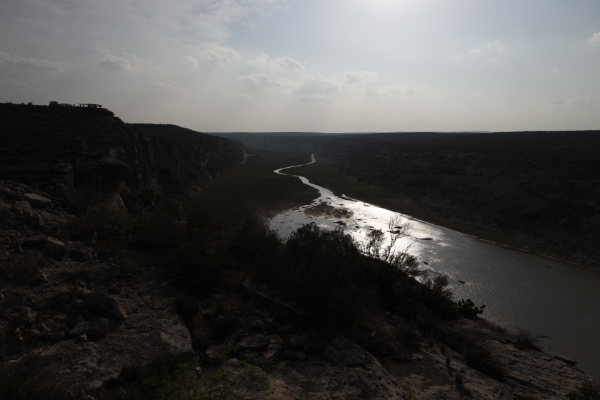
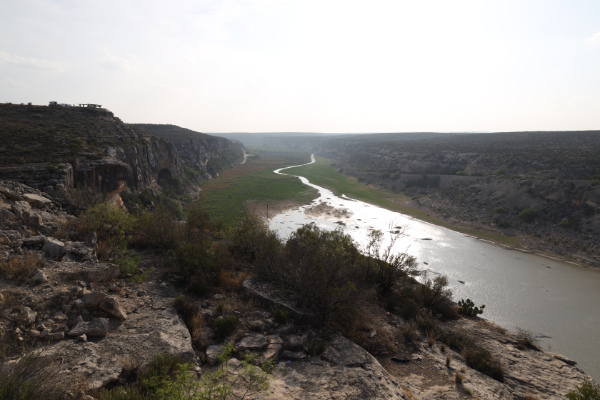
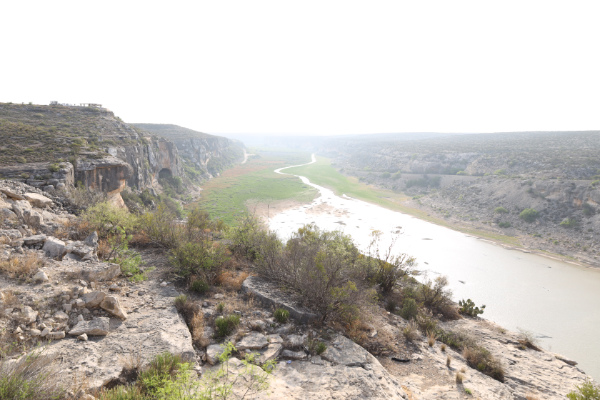
|
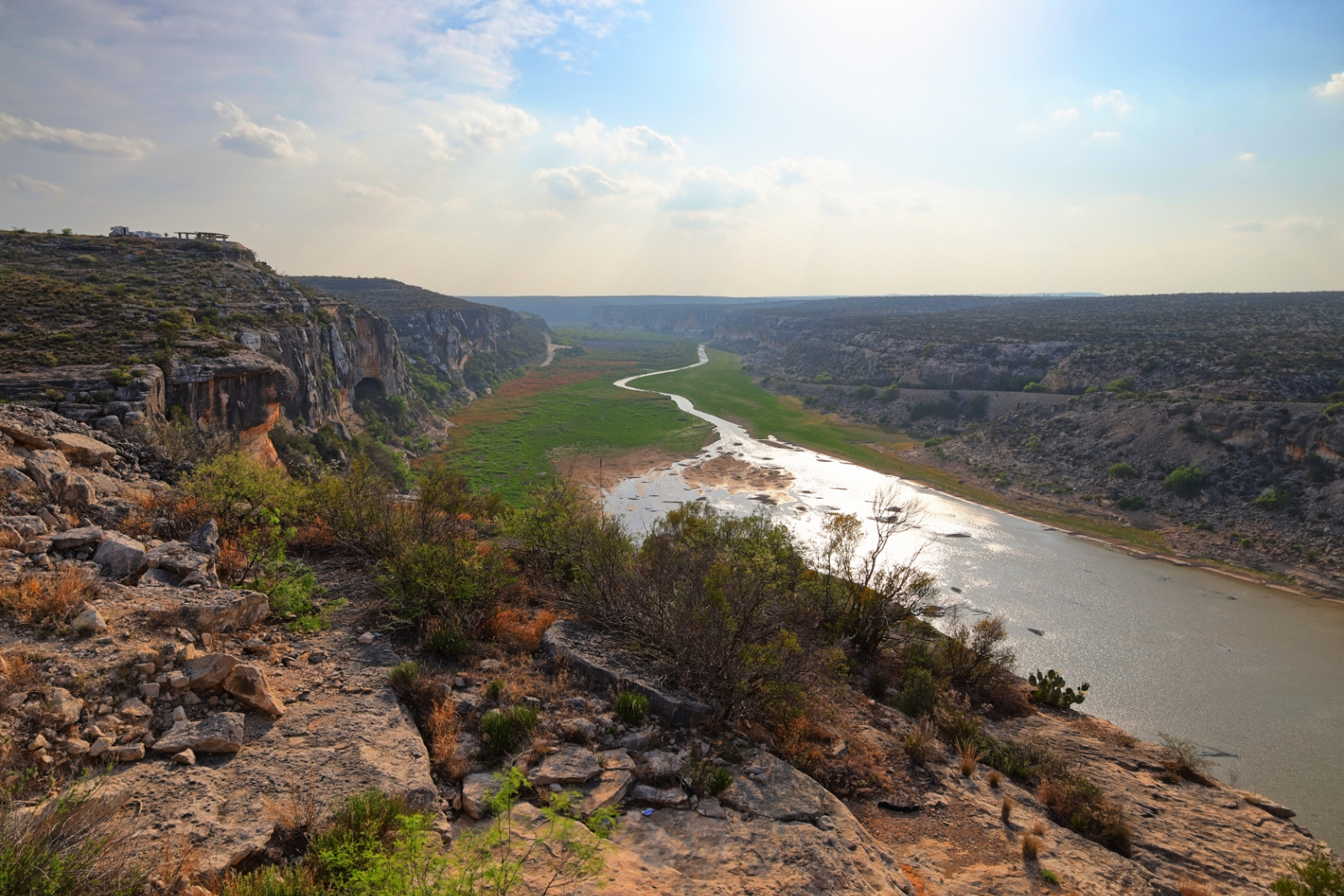
Pecos River view from Highway Bridge, Texas, USA.
Looking against the sun, down the river towards its estuary to Rio Grande (several hours after the total solar eclipse of April 8th, 2024).
Taking photos to the other direction was easy, but here because of the sun, the HDR technique was a must. Three AEB, hand-held photos were taken, loaded into easyHDR, auto aligned and tone mapped.
© Bartłomiej Okonek
|
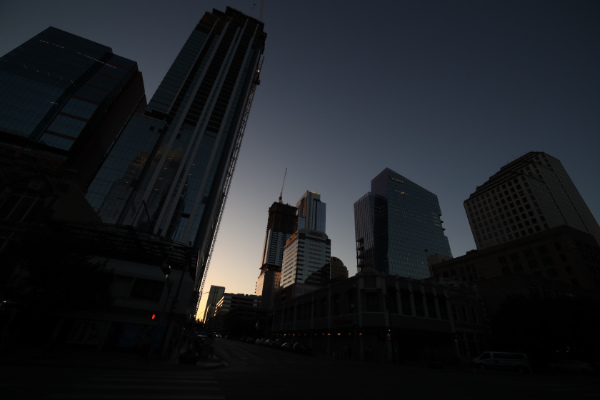
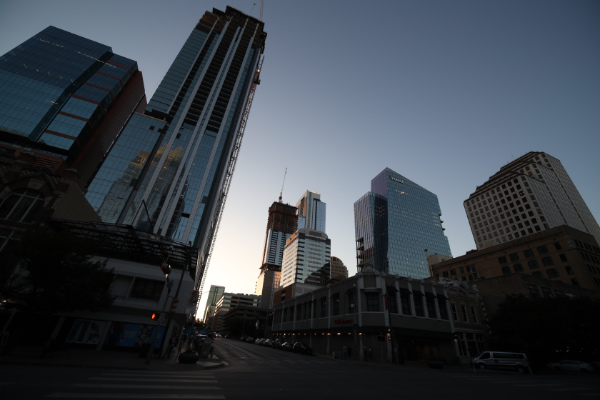
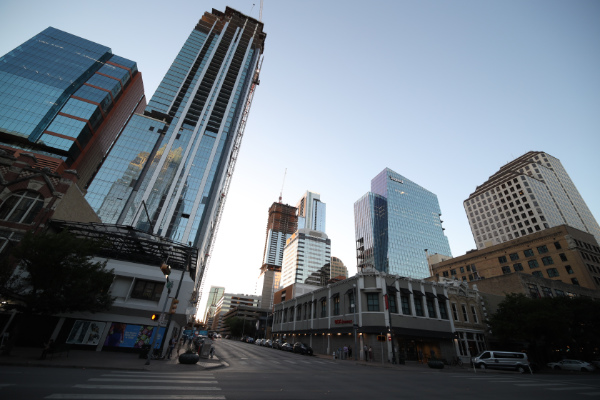
|

Sunset in Austin, Texas, USA.
Hand-held bracket taken while walking around Austin during golden hour. Photos loaded, auto-aligned and tone mapped with easyHDR. Distortion/perspective/rotation and crop tool was used to slightly correct the image. The idea was not to loose the orange light from the setting sun, while having the image well exposed.
© Bartłomiej Okonek
|
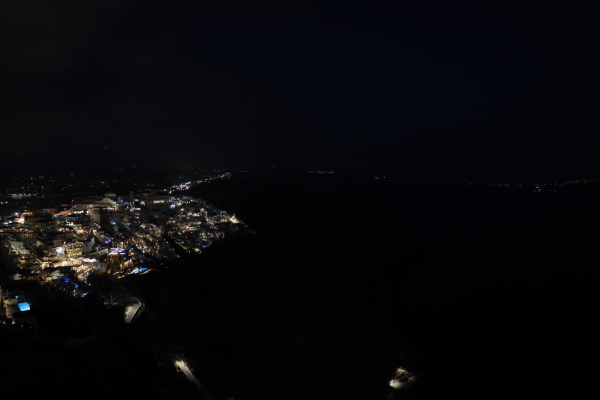
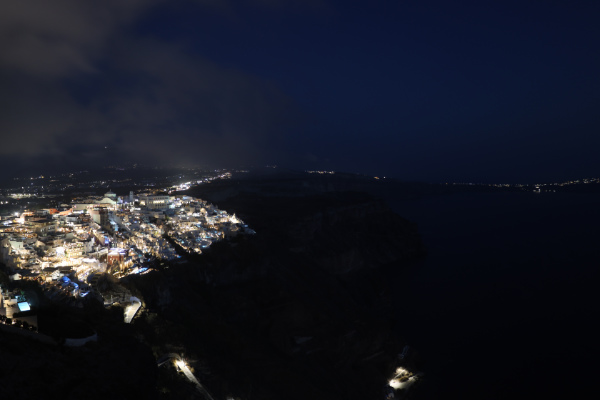
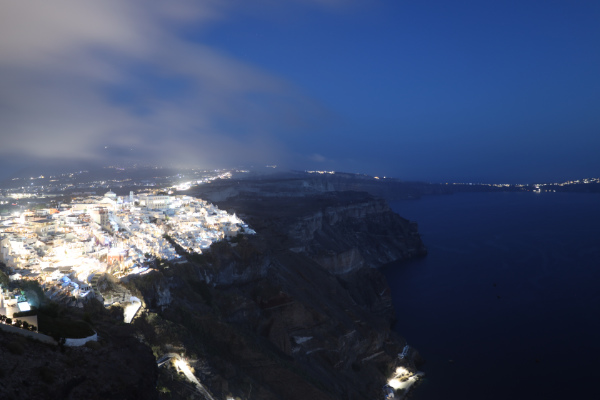
|
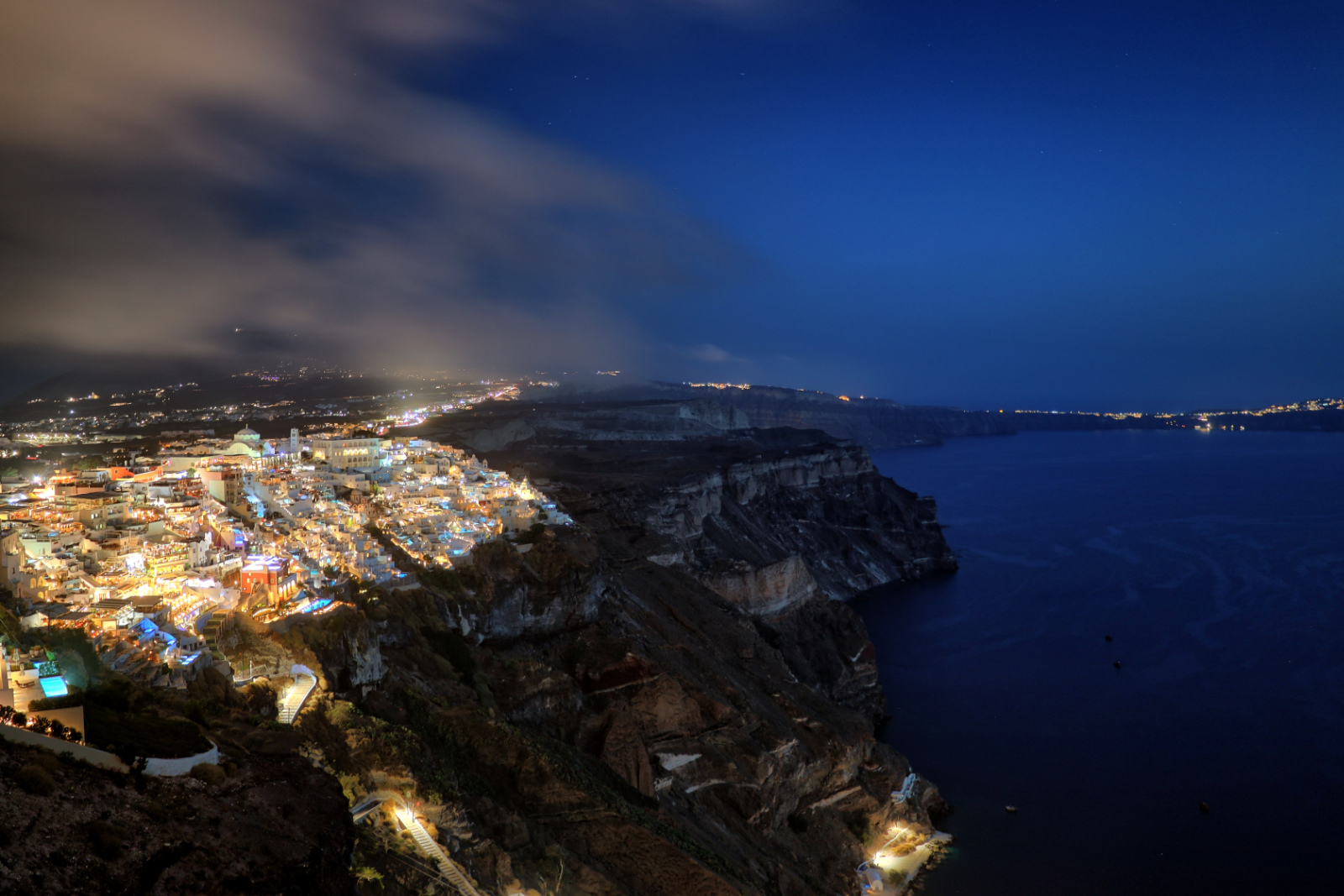
Santorini island at night, Greece.
Looking down on Santorini's capital, Fira, from a trail to Imerovigli. A small tripod was necessary, as well as HDR treatment. Three AEB photos were taken and processed with easyHDR to get all the details in the dark as well as brightest parts.
© Bartłomiej Okonek
|
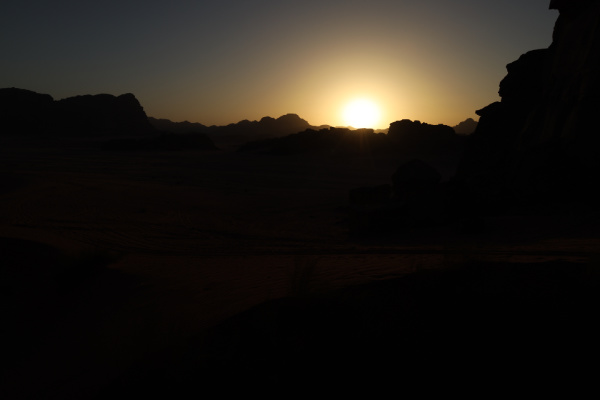
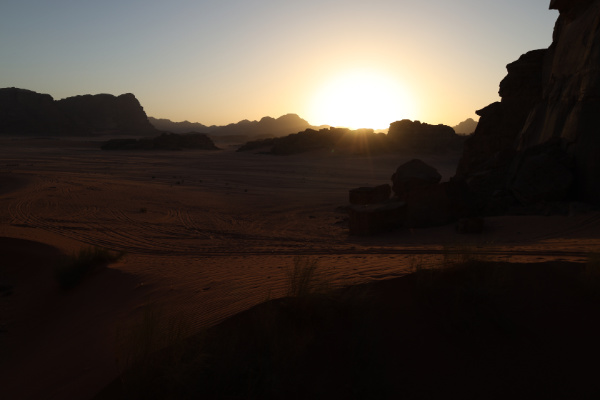
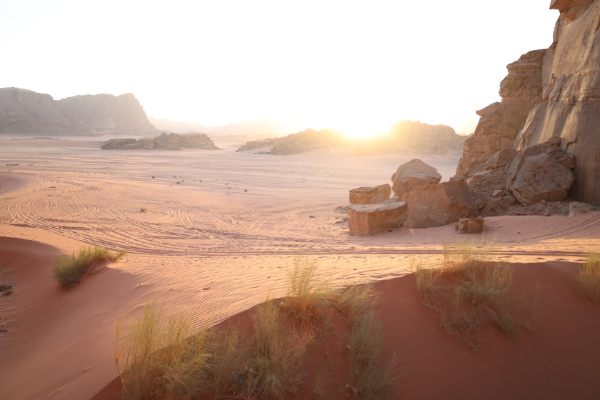
|
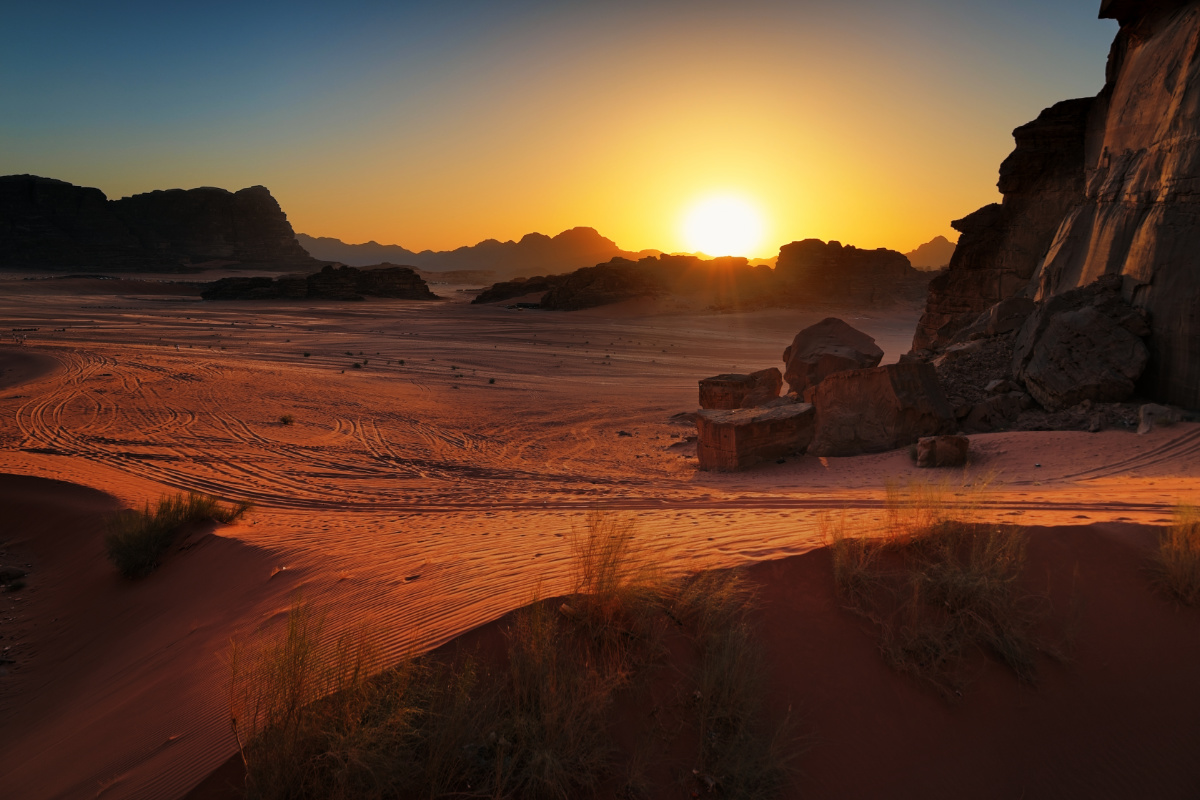
HDR sunset in the Wadi Rum desert, Jordan.
Three hand-held AEB shots auto-aligned, merged to HDR and tone mapped with easyHDR.
The layers tool has been used to process the ground differently than the sky.
© Bartłomiej Okonek
|
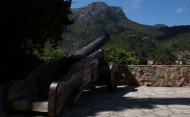
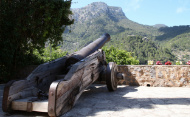
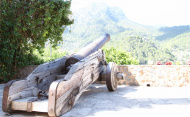
|

HDR photo taken in the mountain town of Deia. Mallorca, Spain.
The HDR sequence of photos was taken hand-held with a zoom lens at 18 mm focal length. EasyHDR automatically fixed lens distortion and chromatic aberrations (which is quite strong with this lens), then the photos were auto aligned. To get the dramatic look,
the tone mapping settings similar to the 'dramatic-dark' preset were used. Also a 'BDMFILM BMPC to Rec 709' 3d LUT was used in easyHDR to further boost the colors. Look for free LUTs or
paid LUT packs on the Internet, then import them to easyHDR and
explore the new possibilities!
© Bartłomiej Okonek
|
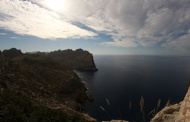
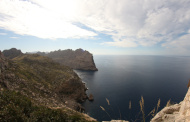
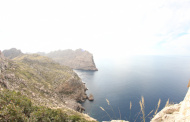
|
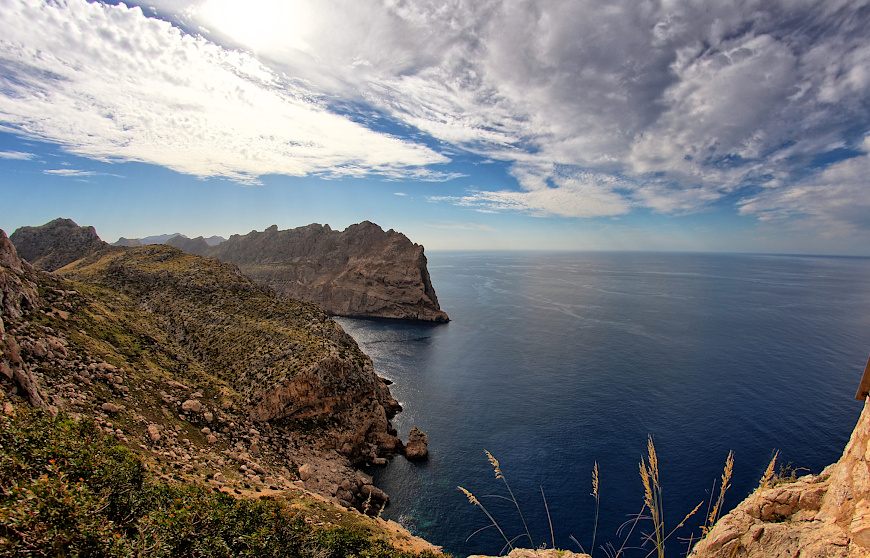
HDR photo taken at the Cap de Formentor. Mallorca, Spain.
The HDR sequence of photos was taken hand-held. An 8mm fish eye lens was perfect to catch the wide view, but unfortunatelly introduced strong distortion, causing the horizon to look too much curved
(see the original 0 EV photo). EasyHDR did auto align the images and automatically
reduced some tiny ghosting in the foreground. At the tone mapping stage, it was possible to correct the lens distortion and to rotate and crop the image. The purple lens flare was also removed
with the clone/healing tool. Using the layers tool, the sky was selected with a gradient mask and processed with slightly different settings, mainly to apply different white balancing.
© Bartłomiej Okonek
|
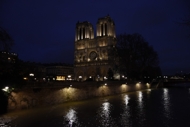
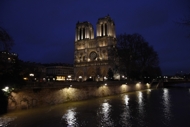
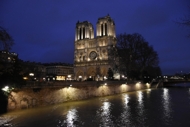
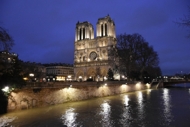
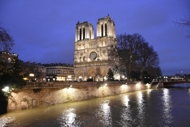
|

Notre-Dame de Paris - HDR picture merged from 5 bracketed shots spanning from -1.3 to +1.3 EV.
This scene does not characterize with very high dynamic range (apart from the lights, which actually take just a fraction of the image). However, the HDR processing with easyHDR, of 5 differently exposed photos, allowed to improve the quality, by merging together the best exposed areas. The noise level has therefore been greatly lowered - especially in the sky and in the shadows. That allowed to boost the local contrasts and make the image look dramatic. The vignetting effect was also very helpful to achieve that.
The moving water was a major problem, but was easily overcome with automatic ghost removal. Also the lens distortion has been automatically corrected with easyHDR in order to straighthen the field of view.
The sky was processed with slightly different tone mapping settings than the rest of the photograph by using layers. That allowed to better tune the settings, depending on the different characteristics of those two areas.
© Frederic Schvartzman
|
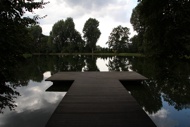
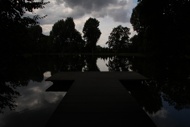
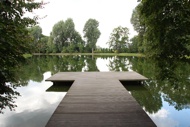
|

A pond near Topacz Castle on the outskirts of Wrocław, Poland. Dramatic HDR clouds.
Three AEB shots spaced by 2EV, merged to HDR image and tone mapped with easyHDR. The sky was processed on a layer, with higher Local Contrast strength in order to make it more dramatic. The pier has also been processed on a
different layer, in order to make it darker and therefore make it less distracting.
The photos were taken just after the sunset, when the shadows become dark and the sky is still very bright. In the 0 EV shot the sky is blown and the rest is too much underexposed to even try to brighten it with software. That would have
brought out noise and color artifacts. Thanks to HDR photo processing, you can control the exposure level of the various areas of the photograph.
Download easyHDR project file (17 MB)
© Bartłomiej Okonek
|
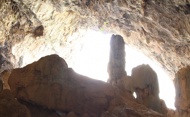
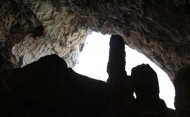
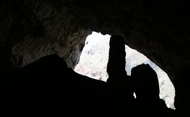
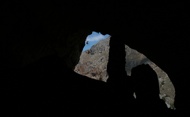
|
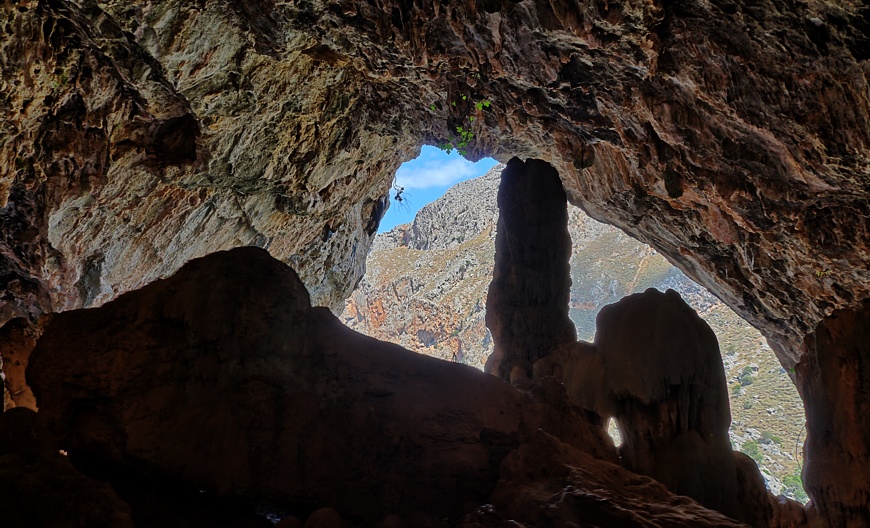
Agia Sofia cave in Topolia gorge, Crete. Extreme dynamic range HDR photo.
Every High Dynamic Range scene like this is very hard to be properly photographed. If the cave's interior is to be
visible on the photo, the view outside is overexposed. On the other hand, getting properly exposed exterior means that no details inside are visible, or are very noisy.
The above result was achieved by combining 11 photos spanning 9EV, taken hand-held. The exposure settings were changed manually, no bracketing was used. EasyHDR aligned the shots
and merged them to a HDR image.
© Bartłomiej Okonek
|
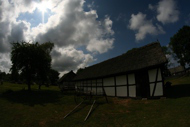
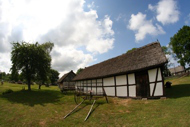
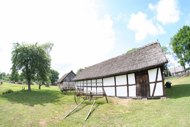
|
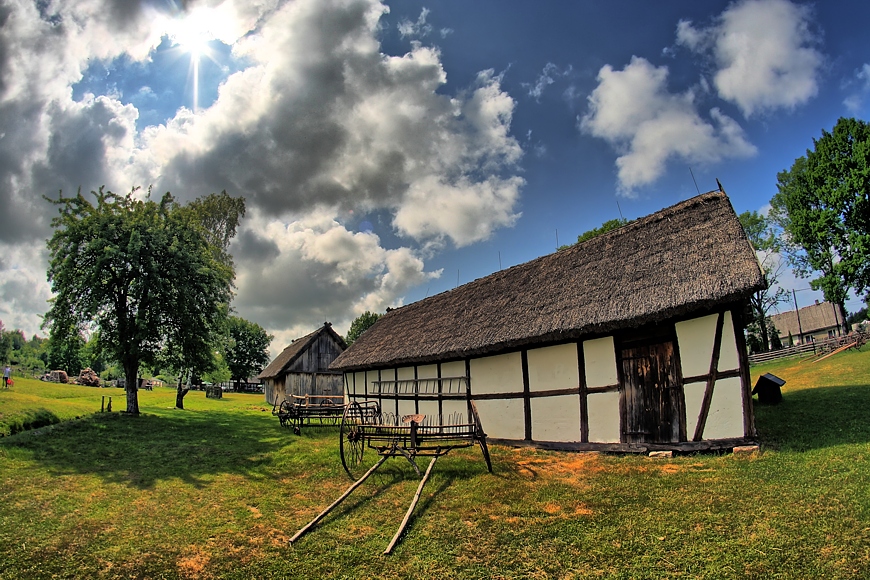
Old cottage house in Kluki open-air museum, Poland. Wide field HDR picture, taken against the Sun.
Three photos taken without a tripod, using auto bracketing (AEB). They were loaded into easyHDR and auto aligned to correct for a tiny misalignment. Then, they were
combined into a HDR image that was finally tone mapped. Settings similar to the "vivid-colors" preset were used. No further post-processing was applied.
It is a perfect example when HDR processing is really useful. The fish eye lens gives so wide view that there easily fit areas that are illuminated extremely differently -
ranging from the deep shadows, up to the very bright clouds. With the HDRi technique, taking a photo straight against the Sun is also not a big deal. Of course it is
the photographers decistion which part of the histogram to clip and therefore achieve the wanted, more realistic, or more dramatic result.
© Bartłomiej Okonek
|
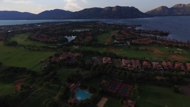
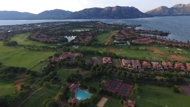
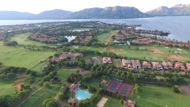
|
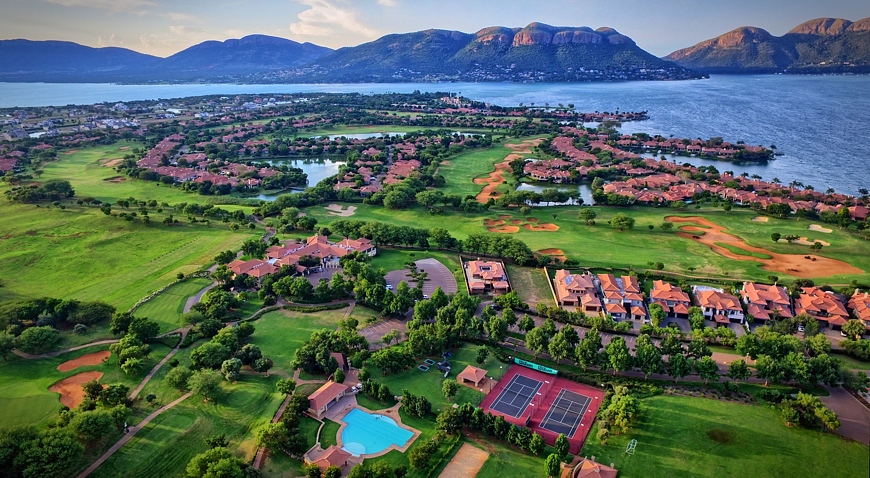
Real estate drone view HDR photo.
Three differently exposed photos were taken by a drone, but only tiny alignment correction was necessary (done automatically by easyHDR). Tone mapping was done with the vivid-colors preset and some subtle vignetting
effect was added. As the last step, free-hand rotation and cropping was applied.
EasyHDR is useful in real-estate business, not only to process house interiors, but also for aerial photography that presents the estate's whereabouts to potential buyers in a neat, eye-catchy way.
© Chris Muller
|
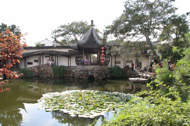
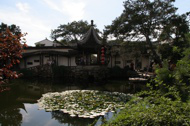
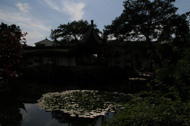
|
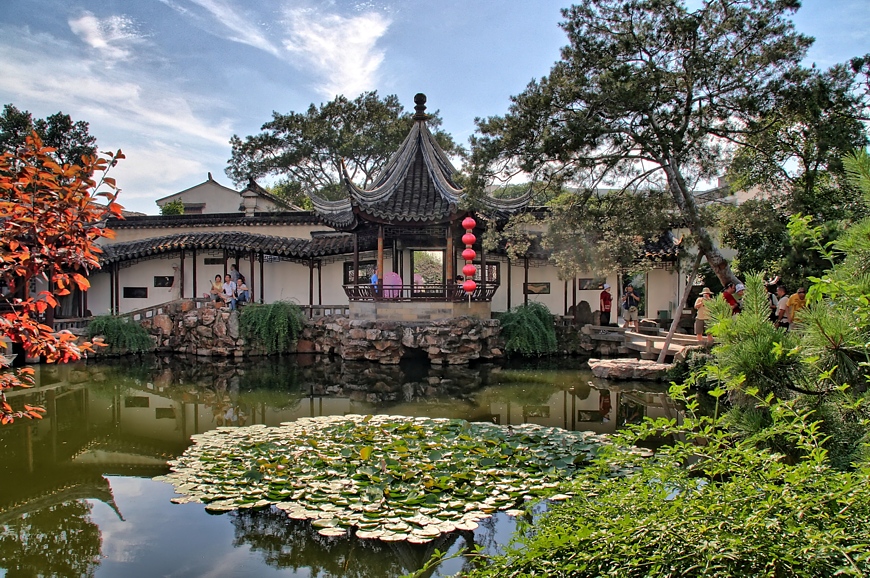
HDR picture. The Master of the Nets Garden in Suzhou, China.
Three photos (AEB sequence) were taken without a tripod. The images were loaded into easyHDR, aligned automatically and merged
into a HDR image using the True-HDR method with "balanced" selectivity. Manual ghost removal was used to
repair ghosting caused by the moving people and tree leafs.
© Bartłomiej Okonek
|
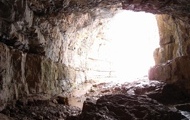
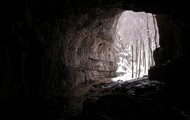
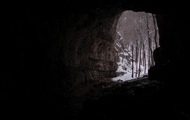

|

Falkensteiner Höhle cave in southern Germany. Really, a high dynamic range image.
Every scene like this is very hard to be properly photographed. If the cave's interior is to be
visible on the photo, the view outside is overexposed. On the other hand, getting properly exposed exterior means that no details inside are visible.
The above result was achieved by combining 4 photos to HDR using "Smart-Merge" method. The tone mapping parameters were default.
© M.E.Erb
|
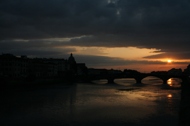
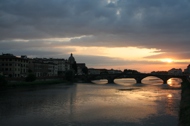
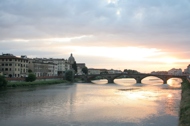
|
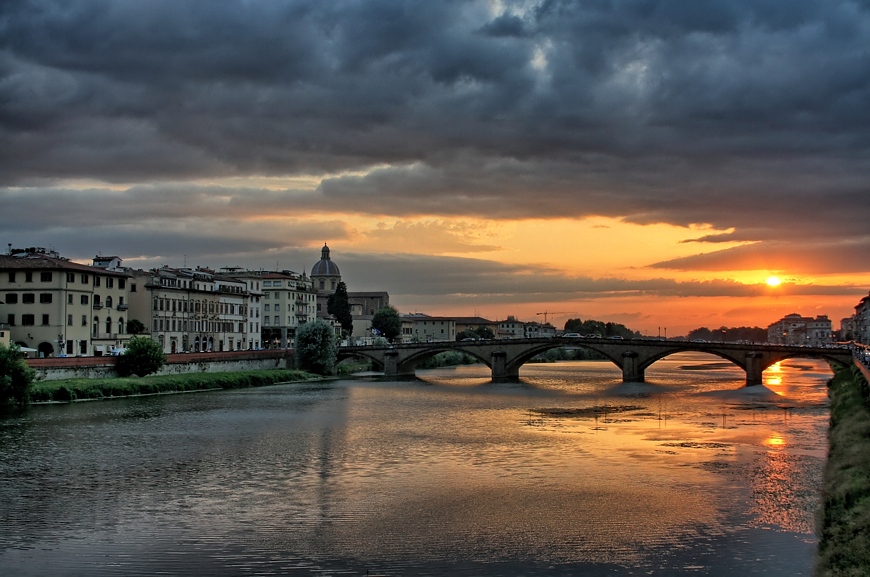
HDR sunset over the Arno river in Florence, Italy. View from Ponte Santa Trinita.
Three photos were taken without a tripod, so they must have been aligned with easyHDR before being merged together. True-HDR method with "Normal" selectivity was used to generate
the HDR image, that was later tone mapped. The tone mapping settings were just slightly modified in respect to the defaults. The "compression"
was slightly increased to make the photo a bit brighter, without losing color saturation. Also the "Local contrast strength" was increased
a bit to make the photo look more dramatic.
© Bartłomiej Okonek
|
Single RAW Photo Development
Using HDR software to enhance a single RAW image. Abandoned train in the Wadi Rum desert, Jordan.
Modern cameras have so big dynamic range that in many cases a single photo is just enough for further processing. Ideally if it's RAW, which allows more control over
exposure and white balance. RAW also contains more information than a single in-camera processed JPEG. In this example a single JPEG was not enough, as there was
too much detail loss in the highlights (oversaturated red channel in the sand, etc.). The RAW provided enough information for HDR tone mapping, so the use of bracketed shots (which were also taken) was not needed.
© Bartłomiej Okonek
Single JPEG Photo Enhancement
Using HDR software to enhance a single JPEG image. Path on Santorini island, Greece.
EasyHDR and its tone mapping operators can also be used to enhance single JPEG photos. This photo is
well exposed, but it was processed with easyHDR to make it look more dramatic. The tone mapping parameters were different for the sky.
In order to do so the "Layers" feature of easyHDR was used.
© Bartłomiej Okonek
North American B-25 Mitchell during Leszno Antidotum airshow.
Taking good photos against the sun is not simple. With easyHDR you can sqeeze the maximum from your camera. Just underexpose a bit a single shot (RAW or JPEG) and process with easyHDR.
© Bartłomiej Okonek
HDR local contrast boosts details clearing the fog, better than simple global contrast.
Pagodas near the Longmen Grottoes as seen from the other side of the river with 200 mm lens. It was a bit foggy, which completely spoiled the original photo.
EasyHDR nicely removed the fog by enhancing the local contrasts and bringing out the real detail.
© Bartłomiej Okonek
Using HDR software to enhance a single JPEG image. Oriental Pearl tower in Shanghai, China.
In this example a single JPEG photo was enhanced using the HDR tone mapping parameters similar to the "dramatic-bright" preset. That allowed enhancing local details making
the photo look more attractive and eye-catchy.
The tone mapping parameters were selected in a way to delicately boost the details. It's not a bad idea to push all your holiday photos through easyHDR's batch processing, applying such settings. The photos will definitely look better
on prints or computer screens.
© Bartłomiej Okonek
More HDR sample photos (on flickr)





























